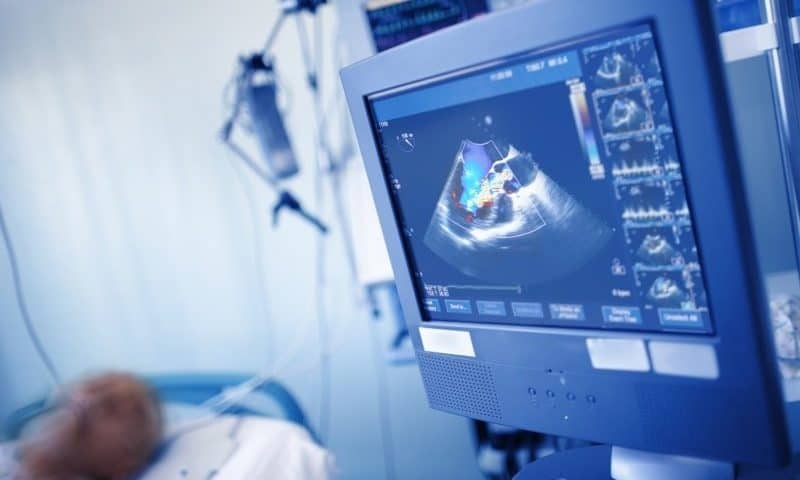After netting an FDA clearance at the top of this year for its artificial intelligence-powered ultrasound system designed to help spot dangerous blockages in the heart’s coronary arteries, Ultromics has secured $33 million in funding to help boost its adoption in hospitals.
The funding will also help Ultromics pitch its offerings for clinical studies, which may currently rely on more expensive and less accurate imaging technologies, co-founder and CEO Ross Upton said in a statement.
The company’s EchoGo Core and EchoGo Pro platforms help check heart function and can aid in the diagnosis of coronary artery disease as well as heart failure and amyloidosis. EchoGo Core also received a CE mark this past April, clearing its launch in Europe and the U.K.
The systems are compatible with any ultrasound device, with algorithms that automatically select the best views of the heart, add echocardiographic borders and measure cardiac strain and ejection fraction before delivering a report to clinicians. The EchoGo platforms are being used by the U.K. National Health Service as well as the Mayo Clinic and the Oregon Health and Science University, the company said.
Originally launched as a spinout from the University of Oxford, the company’s series B round was led by Blue Cross Blue Shield’s Blue Venture Fund, with additional backing from Optum Ventures, GV and Oxford Sciences Innovation, a venture capital firm that operates in partnership with the university.
Earlier this year, Ultromics presented a study at the annual meeting of the American College of Cardiology that put humans up against its AI in predicting which COVID-19 patients may see more severe cardiac complications.
Researchers found the AI could spot changes in the shape of the heart’s left and right ventricles as they moved, potentially forming patterns of muscle weakness. Combined with the patient’s age and history of lung disease, the system could help independently predict in-hospital death rates—while simple measures of ejection fraction or the amount of blood pushed out to the body with each heartbeat, could not.
Ultromics’ AI was also more accurate in predicting severe cases than a panel of experts trained in echocardiograms and helped lead to less variability among scans and readers. In the early stages of the pandemic, the FDA gave green lights to a range of cardiac devices from Philips, Eko and Caption Health to help detect heart damage from COVID-19.
Since then, the race for AI-powered, point-of-care ultrasound devices has heated up, with companies like Exo and EchoNous raising tens of millions for their computer-guided systems.
More recently, handheld ultrasound hardware developer Butterfly Network announced it has teamed up with AI software developer Caption Health to combine their two offerings, for a heart-focused system that can guide users through an echocardiogram and can fit in a pocket.

